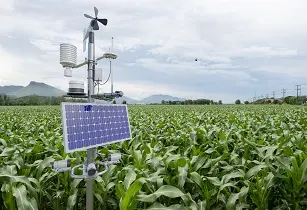As a leading African financial institution, Standard Bank has developed a strategy to finance climate-smart agriculture on the continent
The aim is to increase food security, support livelihoods, strengthen resilience of food systems to climate change and variability, reduce emissions of GHGs and sequester carbon on farmland. Sustainable agriculture focuses on systems that conserve land, water, plant, and genetic resources in environmentally regenerative, technically appropriate, and economically and socially enhancing formats. Farming systems that are climate-smart can adapt to and help manage climate risk, countering global warming by reducing GHG emissions.
“By financing climate-smart agriculture, Standard Bank promotes the development of a sustainable agricultural sector in Africa, ensuring that the continent realises its potential as a global agricultural powerhouse,” said Tunde Macaulay, head of Africa Regions, Business & Commercial Banking at Standard Bank.
Louis Van Ravesteyn, group head of Agribusiness, Business & Commercial Banking at Standard Bank, reported that farmers across Africa are increasingly seeking support on transitioning to more sustainable farming methods. This includes the measurement of GHG emissions so that they can professionally risk-manage their operations, access finance, and report their carbon footprint for off-taker and export purposes.
To this end, Standard Bank has been consulting widely across the agricultural industry. Working with research associations, NGOs, development finance and tertiary institutions in Africa and globally, Standard Bank is developing a body of scientific evidence on which to assemble globally compliant guidance on sustainable agriculture in Africa. Van Ravesteyn explained that the objective is to contribute to the development of a mechanism for individual African farmers to understand their GHG emissions balanced against their carbon sequestration practices. While farmers in Africa are not yet taxed on their emissions, as in many other jurisdictions, “the ability to measure and report carbon footprints – at individual farm level – is critical for African producers if they are to access global markets in the future,” he added.
Macaulay concluded by stating that Standard Bank’s vision to build an ecosystem of scientific, technical, and academic ability capable of informing, measuring, and funding Africa’s transition to sustainable, climate smart agriculture will insure that the continent assumes a much larger share of global agricultural investment, production and trade.





